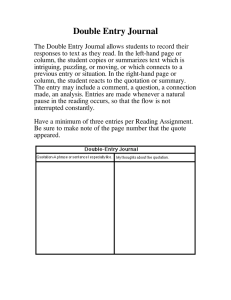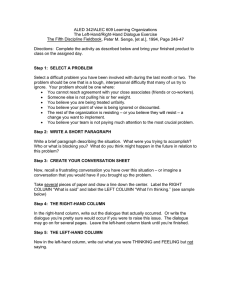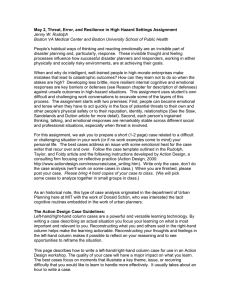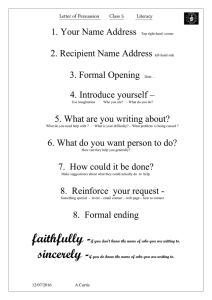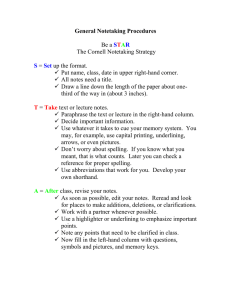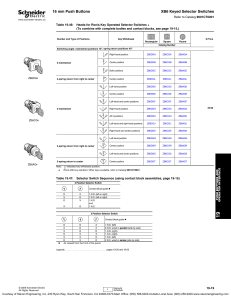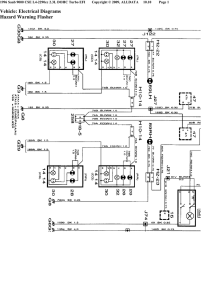North Seattle Community College Beginnings 2009 Case Study 1 (Due October 21
advertisement
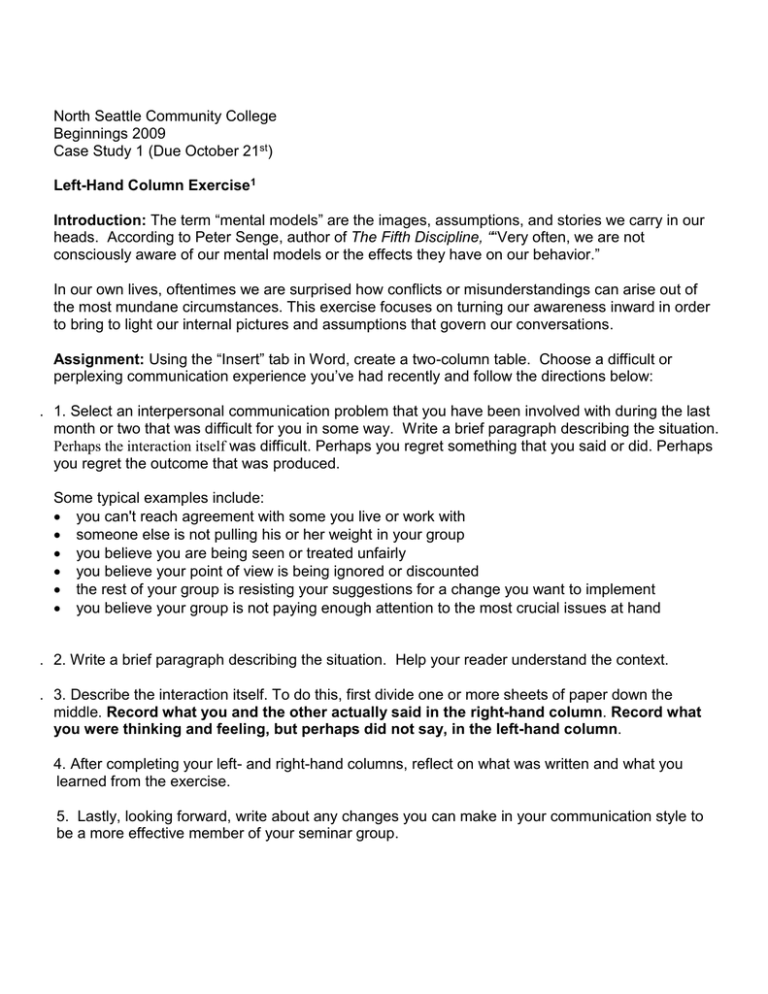
North Seattle Community College Beginnings 2009 Case Study 1 (Due October 21st) Left-Hand Column Exercise1 Introduction: The term “mental models” are the images, assumptions, and stories we carry in our heads. According to Peter Senge, author of The Fifth Discipline, ““Very often, we are not consciously aware of our mental models or the effects they have on our behavior.” In our own lives, oftentimes we are surprised how conflicts or misunderstandings can arise out of the most mundane circumstances. This exercise focuses on turning our awareness inward in order to bring to light our internal pictures and assumptions that govern our conversations. Assignment: Using the “Insert” tab in Word, create a two-column table. Choose a difficult or perplexing communication experience you’ve had recently and follow the directions below: 1. 1. Select an interpersonal communication problem that you have been involved with during the last month or two that was difficult for you in some way. Write a brief paragraph describing the situation. Perhaps the interaction itself was difficult. Perhaps you regret something that you said or did. Perhaps you regret the outcome that was produced. Some typical examples include: you can't reach agreement with some you live or work with someone else is not pulling his or her weight in your group you believe you are being seen or treated unfairly you believe your point of view is being ignored or discounted the rest of your group is resisting your suggestions for a change you want to implement you believe your group is not paying enough attention to the most crucial issues at hand 2. 2. Write a brief paragraph describing the situation. Help your reader understand the context. 3. 3. Describe the interaction itself. To do this, first divide one or more sheets of paper down the middle. Record what you and the other actually said in the right-hand column. Record what you were thinking and feeling, but perhaps did not say, in the left-hand column. 4. After completing your left- and right-hand columns, reflect on what was written and what you learned from the exercise. 5. Lastly, looking forward, write about any changes you can make in your communication style to be a more effective member of your seminar group.
